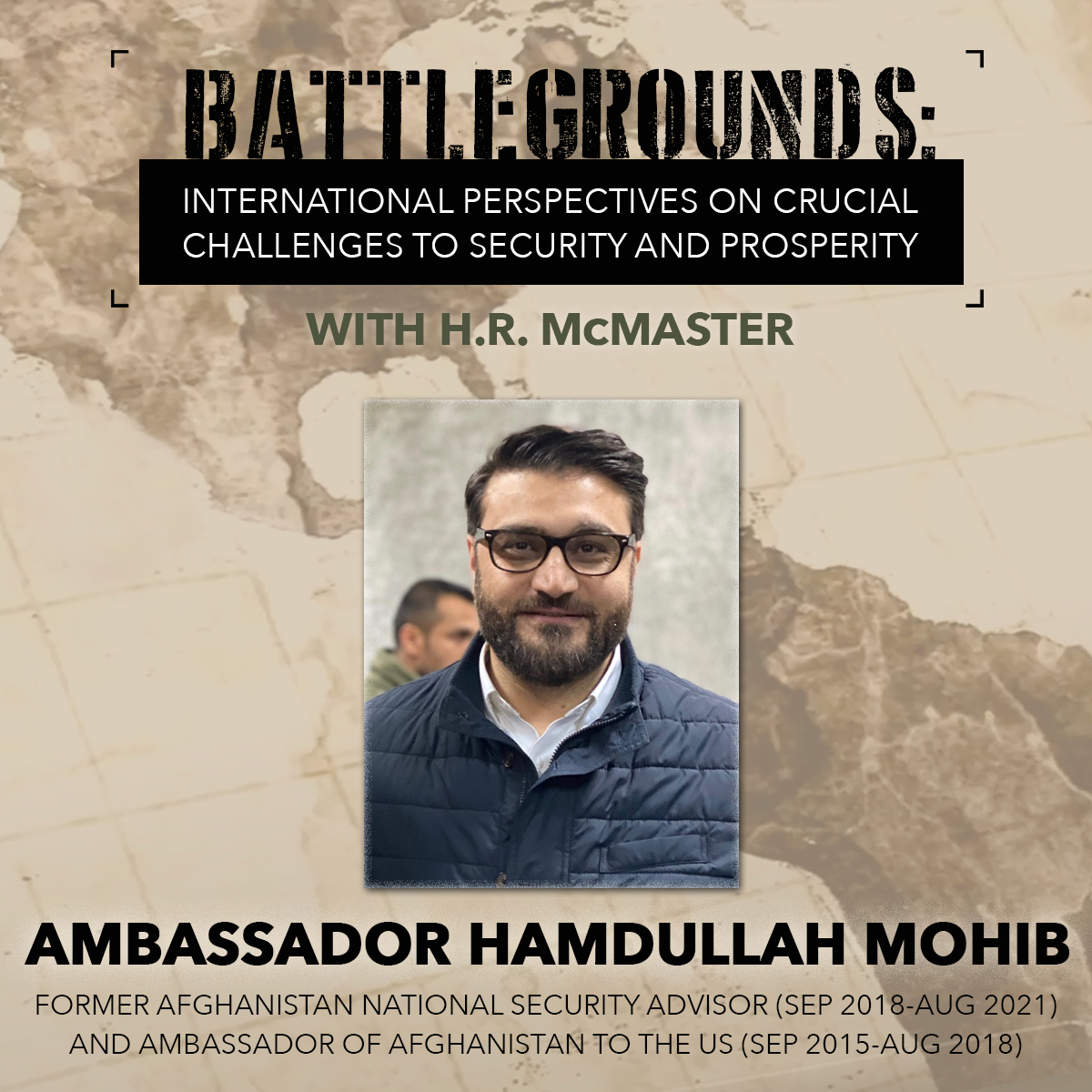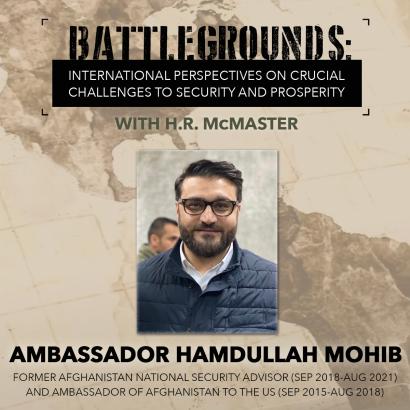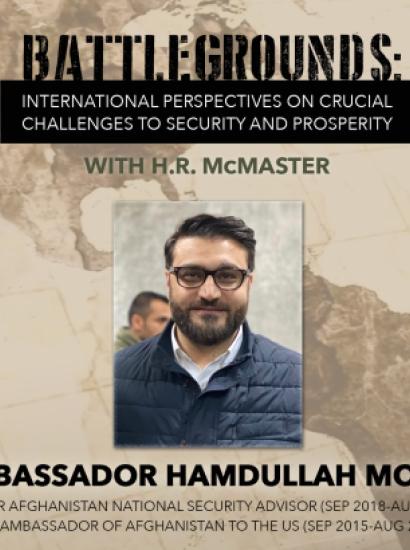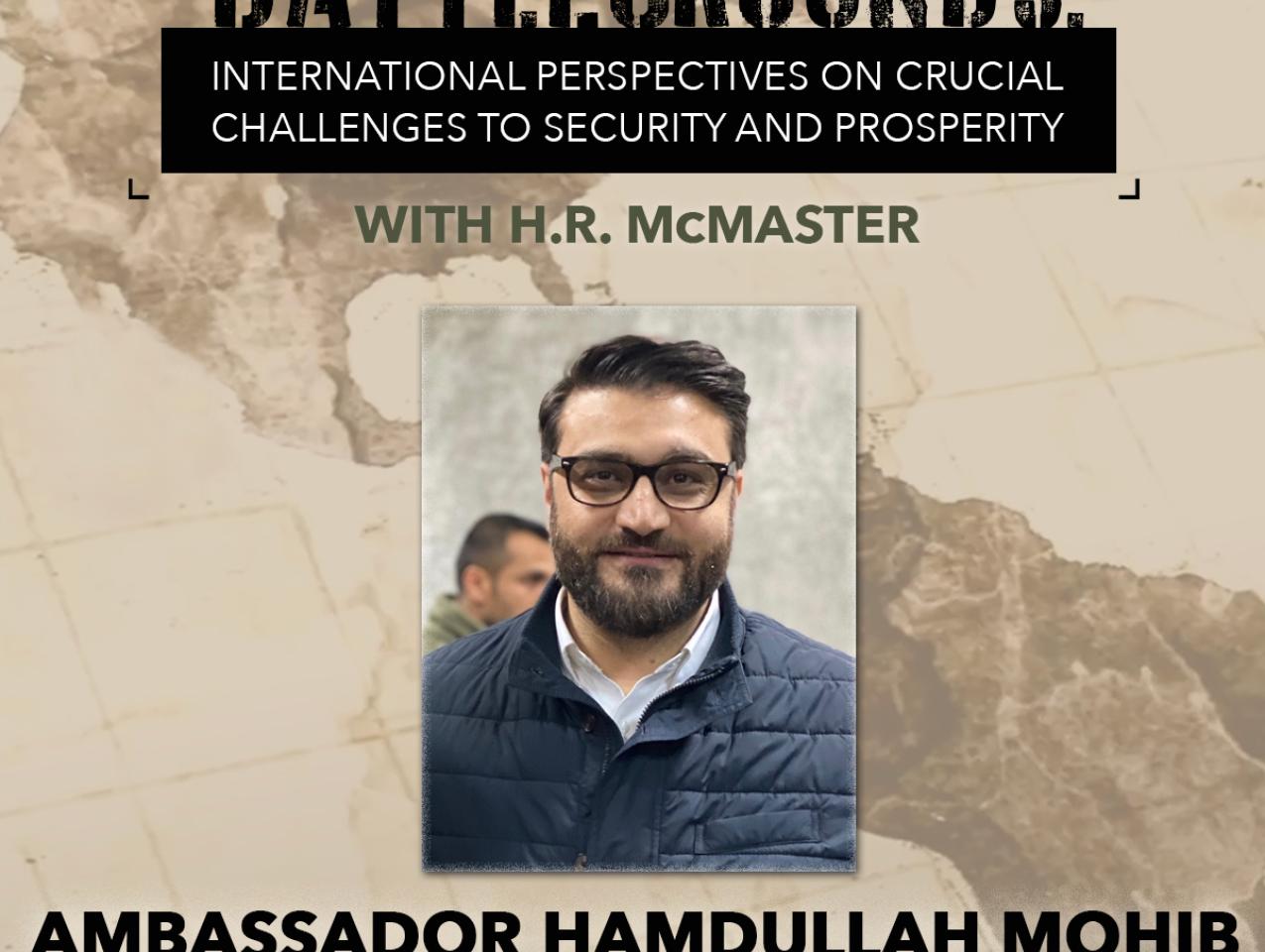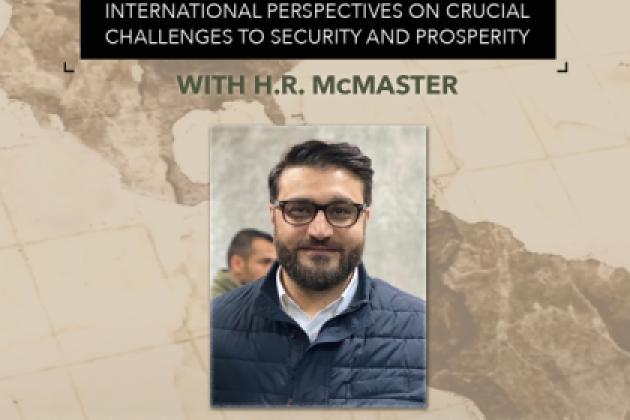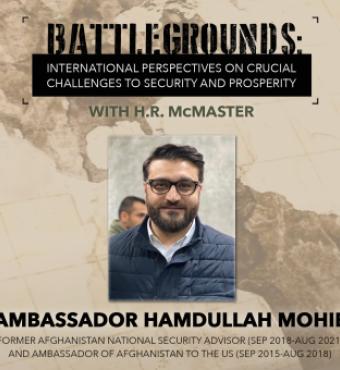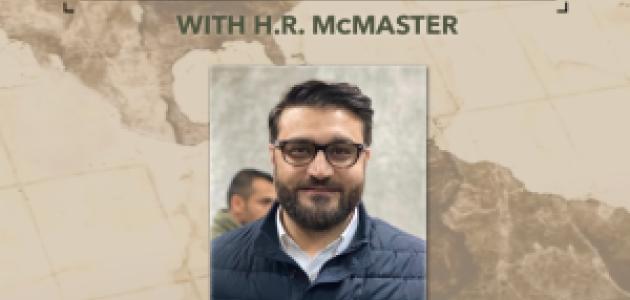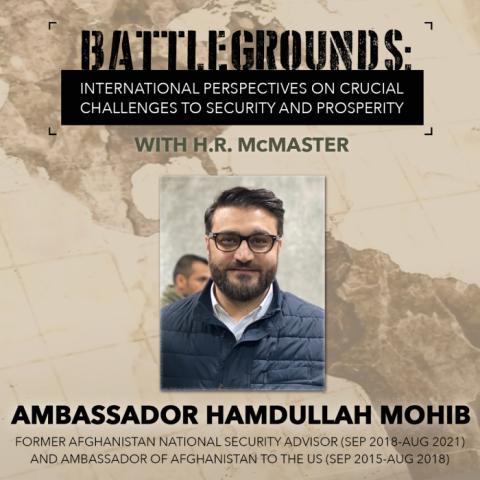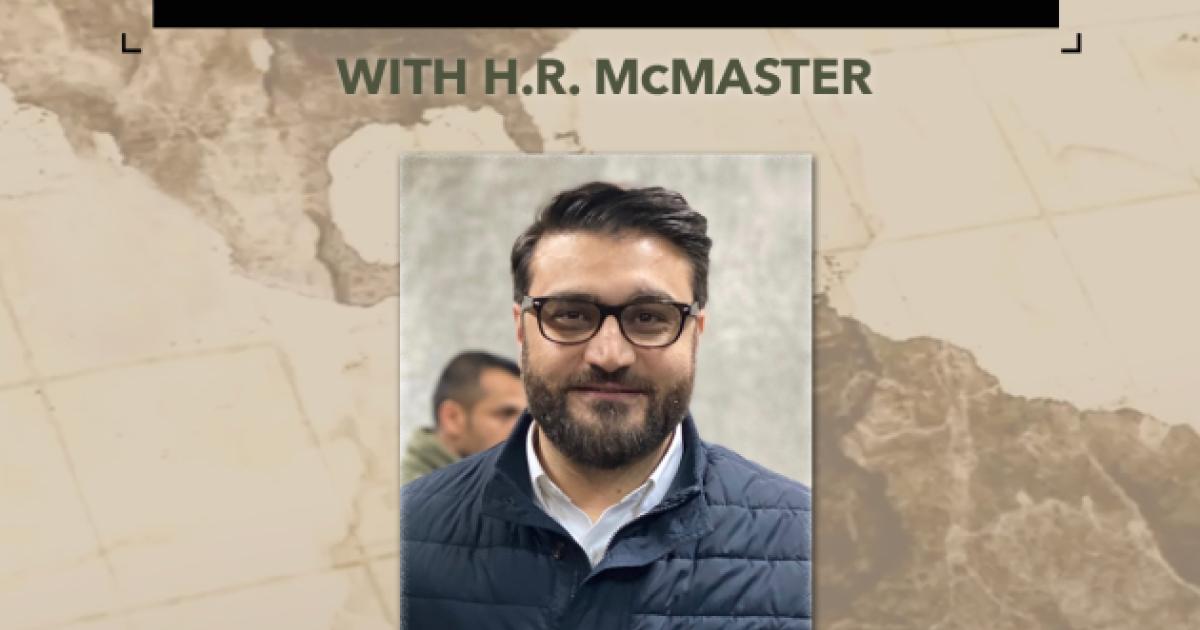- Economics
- US Labor Market
- International Affairs
- Key Countries / Regions
- Middle East
- Security & Defense
- US Defense
- US Foreign Policy
- Terrorism
- History
- Economic
- Military
- Contemporary
- US
- World
- Law & Policy
- Civil Rights & Race
In this episode of Battlegrounds, H.R. McMaster and Ambassador Hamdullah Mohib discuss the causes of the collapse in Afghanistan, the consequences, and options to mitigate the growing crisis.
H.R. McMaster in conversation with Ambassador Hamdullah Mohib on Wednesday, January 12, 2022 at 9:00am PT.
WATCH THIS EPISODE @ 9AM PT, JANUARY 12, 2022
RECAP
In this episode of Battlegrounds, Fouad and Michelle Ajami Senior Fellow H. R. McMaster interviewed Hamdullah Mohib, national security advisor (2018–21) to former Afghan president Ashraf Ghani and Afghanistan’s ambassador to the United States (2015–18). Mohib discussed the peace agreement between the United States and the Taliban beginning in February 2020, and the factors that led to the downfall of the Afghan government and the return of the Taliban in August 2021.
Mohib explained that by summer 2019, the Afghan National Army was successfully pushing back and stabilizing provinces under siege. However later that year, as peace negotiations between the United States and the Taliban (of which the Afghan government was excluded) made progress, Afghans began to lose American air support. In 2020, US government leaders told their Afghan counterparts to cease offensive operations against the Taliban and to only maintain an active defensive posture.
Mohib maintained that although the Afghan army was making progress in providing security and stability to the country at large, there were several challenges that weakened the national government’s unity and legitimacy on the world stage. Mohib said that a key point in the war was in December 2009, when President Obama announced a troop surge to Afghanistan, followed by a phased withdrawal that would begin in July 2011. As a result, surrounding countries started to think about the future of Afghanistan beyond American troop presence and increased their communications with the Taliban leadership. Afghan politicians and officials at the provincial level also started to actively reach out to the Taliban, betting that the Islamist group may return to power.
Mohib said that another factor in the fall of the Afghan government was widespread political corruption that influenced even members of its military. Unchecked criminal activity weakened the government, diverted resources from programs meant to serve the Afghan people, and ultimately fragmented the political class, who were unable to unite the government around a common purpose.
Mohib also blamed the United States for imposing a peace agreement that defeated any resolve the Afghan government had left in its final days of fighting the Taliban. For example, he said, the US stopped supporting Afghanistan’s local police program, which meant that law enforcement officers would no longer be compensated for defending their communities.
Ultimately, Mohib doesn’t believe that Taliban rule will last. He maintained that the Islamist group’s fundamental vulnerability is its desire to monopolize power, thus ignoring the voices of the country’s diverse population and its complex set of challenges. Mohib concluded that the Afghan diaspora and political classes need to put aside their differences and create a single narrative in order to have any hope at rebuilding their democracy.
ABOUT THE SPEAKERS

Dr. Hamdullah Mohib was a senior member of the Islamic Republic of Afghanistan. He served as the National Security Advisor from 2018 to 2021, as Ambassador to the United States from 2015 to 2018 and as Deputy Chief of Staff to the President from 2014 to 2015.
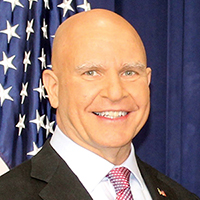
H. R. McMaster is the Fouad and Michelle Ajami Senior Fellow at the Hoover Institution, Stanford University and the Japan Chair at the Hudson Institute. He is also the Bernard and Susan Liautaud Fellow at the Freeman Spogli Institute and lecturer at Stanford University’s Graduate School of Business. He was the 25th assistant to the president for National Security Affairs. Upon graduation from the United States Military Academy in 1984, McMaster served as a commissioned officer in the United States Army for thirty-four years before retiring as a Lieutenant General in June 2018.
Battlegrounds provides a needed forum with leaders from key countries to share their assessment of problem sets and opportunities that have implications for U.S. foreign policy and national security strategy. Each episode features H.R. McMaster in a one-on-one conversation with a senior foreign government leader to allow Americans and partners abroad to understand how the past produced the present and how we might work together to secure a peaceful and prosperous future. “Listening and learning from those who have deep knowledge of our most crucial challenges is the first step in crafting the policies we need to secure peace and prosperity for future generations.”







